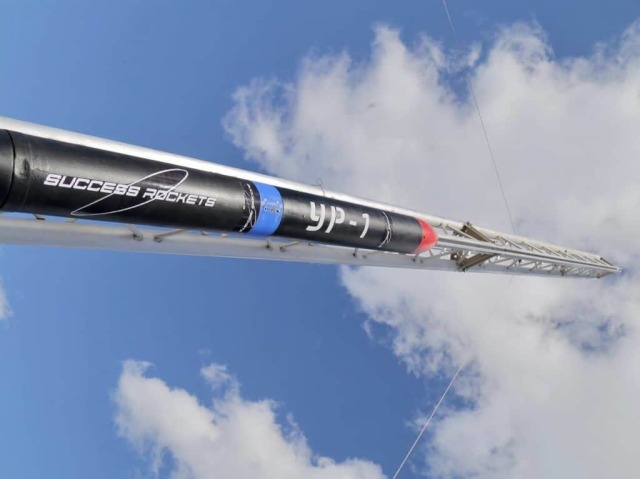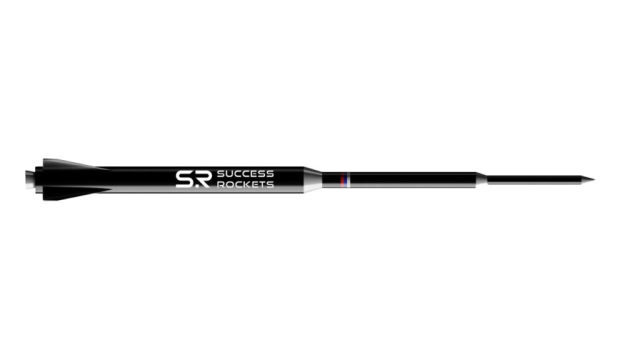The NEBO 25 suborbital carrier was launched in Russia for the first time. Femtosatellites were placed on its board. During the tests, the engineers collected all the necessary information about the state of the carrier.
The private company Success Rockets, created by entrepreneur Oleg Mansurov, was the first to launch its NEBO 25 launch vehicle. The launch was held on December 23 in the Astrakhan region. For the company, this launch was the second in a year. In April, she tested another carrier: then a prototype of the UR-1 meteor rocket was launched at the test site in the Kirov region.
Femtosatellites — spacecraft weighing less than one hundred grams - acted as the payload of NEBO 25. The TASS logo, which acts as a strategic information partner, was placed on the rocket body. The carrier was customized by Russian NFT artist Nikita Replyansky, known as R66. Inside was a collectible toy that he had created.
Due to the strong wind, the commission adjusted the angle and trajectory of the launch. According to the new scheme, NEBO 25 overcame a distance of more than 18 kilometers and reached a seven-kilometer height. The engine ran for 8.2 seconds. In comparison with the previous launch, Success Rockets increased the range almost tenfold.
During the flight, specialists received telemetry data from the rocket, which made it possible to analyze the state of the carrier in detail and make the necessary adjustments in the future.
NEBO 25 is a single-stage solid-fuel carrier having a length of 3.5 meters and a mass of 65 kilograms. Development began in 2020. The launch was carried out with the support of the Arcturus Center of the Russian Ministry of Education and Science.
Success Rockets positions itself as a manufacturer of ultralight launch vehicles, as well as space tugs and satellites. As of autumn, the parent management company united a number of subsidiaries in different Russian regions.

Photos from flight tests of a solid-fuel engine
Image Source: Success Rockets
Earlier, Oleg Mansurov said that Success Rockets plans to launch a suborbital rocket to an altitude of more than 100 kilometers next year. In 2024, the company intends to perform a full-fledged orbital launch. It should also be noted that last year Success Rockets announced plans to build its own spaceport.
Recall that in December it became known about the completion of the preliminary design of the new Russian rocket "Irtysh" (also known as "Soyuz-5"), which in the future should replace the "Soyuz-2". And last year, work started on the Soyuz-6 carrier.

